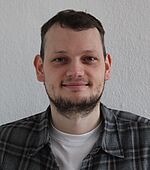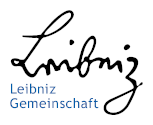- Das Institut
- Forschung
- Diktaturen im 20. Jahrhundert
- Demokratien und ihr historisches Selbstverständnis
- Transformationen in der neuesten Zeitgeschichte
- Internationale und transnationale Beziehungen
- Editionen
- Dissertationsprojekte
- Abgeschlossene Projekte
- Dokumentation Obersalzberg
- Zentrum für Holocaust-Studien
- Berliner Kolleg Kalter Krieg
- Publikationen
- Vierteljahrshefte
- Archiv
- Bibliothek
- Zentrum für Holocaust-Studien
- Aktuelles
- Termine
- Presse
- Neuerscheinungen
- Aus dem Institut
- Themen
- Spielfilm im Nationalsozialismus
- Die Geschichte des Bundesministeriums der Finanzen (1945-1990)
- Reordering Yugoslavia, Rethinking Europe
- 75 Jahre Institut für Zeitgeschichte
- München 1972
- Confronting Decline
- Digitale Zeitgeschichte
- Zeitgeschichte Open
- Das Deutsche Verkehrswesen
- Bundeskanzleramt
- Demokratische Kultur und NS-Vergangenheit
- Geschichte der Treuhandanstalt
- Akten zur Auswärtigen Politik
- Dokumentation Obersalzberg
- Edition "Mein Kampf"
- "Man hört, man spricht"
- Newsletter
- IfZ
- Zentrum für Holocaust-Studien
- Fellowships
- Aktuelle Fellows
Aktuelle Fellows des Zentrums für Holocaust-Studien

Andreas Pupkes ist Doktorand an der Humboldt-Universität zu Berlin. Er studierte im Bachelor Geschichtswissenschaften an der Universität Kassel und schloss sein Masterstudium der Geschichte mit Schwerpunkt Zeitgeschichte an der Humboldt-Universität zu Berlin ab.
Nach seinem Abschluss an der Universität war er bei der Gedenkstätte Sachsenhausen und der Stiftung Brandenburgischen Gedenkstätten tätig und wirkte an der Ausstellung „Verwaltung als Verbrechen. Die SS-Behörde ‚Inspektion der Konzentrationslager‘“ mit.
In seinem Dissertationsprojekt mit dem Titel „Der Mitarbeiter:innenstab des Inspekteur der Konzentrationslager (IKL)“ möchte er das beim IKL tätige Personal gruppenbiografisch untersuchen, Tätigkeitsfelder und Arbeitsweisen analysieren und den in der Forschung für diesen Personenkreis gängigen Begriff des sogenannten „Schreibtischtäters“ problematisieren.
Sein besonderes Interesse gilt der Geschichte der nationalsozialistischen Konzentrationslager und der Täter:innenforschung. Während seines Aufenthalts am Center für Holocaust Studies wird sich Andreas mit Gerichtsakten beschäftigen und die Bestände des Archivs der nahe gelegenen KZ Gedenkstätte Dachau sichten.


